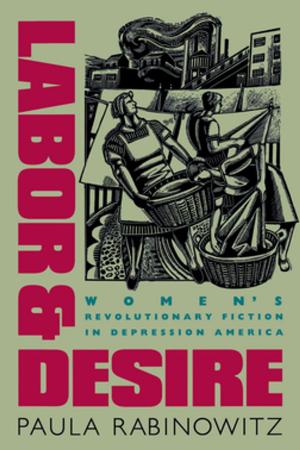Welsh Americans
A History of Assimilation in the Coalfields
Nonfiction, Social & Cultural Studies, Social Science, Cultural Studies, Emigration & Immigration, Ethnic Studies, History, Americas, United States| Author: | Ronald L. Lewis | ISBN: | 9780807887905 |
| Publisher: | The University of North Carolina Press | Publication: | June 1, 2009 |
| Imprint: | The University of North Carolina Press | Language: | English |
| Author: | Ronald L. Lewis |
| ISBN: | 9780807887905 |
| Publisher: | The University of North Carolina Press |
| Publication: | June 1, 2009 |
| Imprint: | The University of North Carolina Press |
| Language: | English |
In 1890, more than 100,000 Welsh-born immigrants resided in the United States. A majority of them were skilled laborers from the coal mines of Wales who had been recruited by American mining companies. Readily accepted by American society, Welsh immigrants experienced a unique process of acculturation. In the first history of this exceptional community, Ronald Lewis explores how Welsh immigrants made a significant contribution to the development of the American coal industry and how their rapid and successful assimilation affected Welsh American culture.
Lewis describes how Welsh immigrants brought their national churches, fraternal orders and societies, love of literature and music, and, most important, their own language. Yet unlike eastern and southern Europeans and the Irish, the Welsh--even with their "foreign" ways--encountered no apparent hostility from the Americans. Often within a single generation, Welsh cultural institutions would begin to fade and a new "Welsh American" identity developed.
True to the perspective of the Welsh themselves, Lewis's analysis adopts a transnational view of immigration, examining the maintenance of Welsh coal-mining culture in the United States and in Wales. By focusing on Welsh coal miners, Welsh Americans illuminates how Americanization occurred among a distinct group of skilled immigrants and demonstrates the diversity of the labor migrations to a rapidly industrializing America.
In 1890, more than 100,000 Welsh-born immigrants resided in the United States. A majority of them were skilled laborers from the coal mines of Wales who had been recruited by American mining companies. Readily accepted by American society, Welsh immigrants experienced a unique process of acculturation. In the first history of this exceptional community, Ronald Lewis explores how Welsh immigrants made a significant contribution to the development of the American coal industry and how their rapid and successful assimilation affected Welsh American culture.
Lewis describes how Welsh immigrants brought their national churches, fraternal orders and societies, love of literature and music, and, most important, their own language. Yet unlike eastern and southern Europeans and the Irish, the Welsh--even with their "foreign" ways--encountered no apparent hostility from the Americans. Often within a single generation, Welsh cultural institutions would begin to fade and a new "Welsh American" identity developed.
True to the perspective of the Welsh themselves, Lewis's analysis adopts a transnational view of immigration, examining the maintenance of Welsh coal-mining culture in the United States and in Wales. By focusing on Welsh coal miners, Welsh Americans illuminates how Americanization occurred among a distinct group of skilled immigrants and demonstrates the diversity of the labor migrations to a rapidly industrializing America.















